This article was medically reviewed by Luba Lee, FNP-BC, MS. Luba Lee, FNP-BC is a Board-Certified Family Nurse Practitioner (FNP) and educator in Tennessee with over a decade of clinical experience. Luba has certifications in Pediatric Advanced Life Support (PALS), Emergency Medicine, Advanced Cardiac Life Support (ACLS), Team Building, and Critical Care Nursing. She received her Master of Science in Nursing (MSN) from the University of Tennessee in 2006.
There are 18 references cited in this article, which can be found at the bottom of the page.
wikiHow marks an article as reader-approved once it receives enough positive feedback. In this case, 100% of readers who voted found the article helpful, earning it our reader-approved status.
This article has been viewed 279,362 times.
A miscarriage is the sudden end of a pregnancy. About 10 to 25 percent of all pregnancies will end in miscarriage.[1] For the most part, miscarriages are unpreventable and the result of an abnormality of the fetus. Recovering from a miscarriage, emotionally and physically, takes time.
Steps
Recovering Physically
-
1Discuss your recovery with a doctor. You should seek medical help during the first signs of a miscarriage. Recovery depends on your personal health and stage of pregnancy. Recovery usually takes between a couple hours and a couple days.
- An ultrasound can be used to detect a miscarriage.
- You have several choices about how you wish to proceed medically. The right choice depends heavily on your own personal preference and your stage of pregnancy.[2]
- You can let the miscarriage happen naturally if there are no signs of infection. This takes between 1-4 weeks, but the process can be emotionally difficult.
- You can also take medicine that speed the miscarriage. This might minimize side effects like nausea and diarrhea, and it usually works within 24 hours.[3]
- A surgical procedure may be necessary if there is heavy bleeding or infection. There's a small risk of complications, but these are very rare.[4]
-
2Prepare for potential side effects. Physically, miscarriages may come with certain side effects. Be prepared to experience the following during a miscarriage:[5]
- Mild to severe back pain
- Weight loss
- White-pink mucus
- Brown or bright red discharge
- Always see a doctor if side effects get worse. You want to make sure any infections or complications are dealt with quickly.
Advertisement -
3Get immediate medical attention if you have more serious symptoms. These symptoms include heavy bleeding, fever, chills, and severe abdominal pain. Call your doctor or 911 for emergency treatment.[6]
- If you are going through 2 or more maxipads in 2 hours, you may have heavy bleeding. Get medical help as soon as possible.
-
4Take any medication prescribed. After a miscarriage, your doctor may prescribe you certain medications. These can prevent infections and help manage the pain. Take any medications the doctor prescribes as directed.[7]
- You'll probably be prescribed a medication to prevent hemorrhaging, especially if you were further into your pregnancy, when the risk of excessive bleeding is higher.[8]
- Your doctor may also prescribe antibiotics to prevent an infection. Take these as directed, and avoid drinking alcohol or other activities that would make the drugs less effective.[9]
- If you have Rh negative blood, your doctor may prescribe a drug called Rh(D) immune globulin (RhoGam). This will protect future fetuses that may be Rh positive.
-
5Deal with the physical recovery at home. Once you've dealt with the miscarriage medically, you need to recover at home. Talk to your doctor about how to give yourself time to heal.
- For the first two weeks after your miscarriage, refrain from sex and do not put anything, such as a douche or tampon, in your vagina.[10]
- Talk to your doctor about when to return to normal activity and any precautions you should take.[11]
- Recovery generally takes from a few hours to a few days. Your period should return within 4 to 6 weeks.[12]
- You can use any type of birth control immediately following a miscarriage. This includes intrauterine devices. Talk to your doctor for more information.[13]
Coping Emotionally
-
1Allow yourself time to grieve. Miscarrying is an incredibly emotional experience. It's normal to feel a sense of loss and you need to allow yourself time to grieve the baby. The emotions you experience after a miscarriage are normal, even when they're quite intense. You might feel sadness, anger, or blame, for instance. While the emotions may be difficult to deal with, you need to allow yourself to experience them fully. [14]
- Journaling your thoughts during the weeks following your miscarriage can be a healthy way to process your feelings.
- Remember, hormones play a role as well. The hormonal response you have to pregnancy and miscarriage increases the intensity of your emotions.
- It's not uncommon to cry for prolonged periods in the wake of a miscarriage. Trouble eating and sleeping are also common after losing a baby.
- Try to remind yourself these feelings are temporary and, with time, you'll feel closer to normal.
-
2Seek support from others. Having a strong support network is very important after a miscarriage. Seek out guidance, comfort, and advice from those around you, especially people who've undergone a similar ordeal.
- Nurses at hospitals see a lot of miscarriages. Ask your nurse to recommend resources or a local support group that may help.[15]
- Tell your loved ones what you need from them, whether that's extra support or plenty of space. There is no wrong way to feel after suffering pregnancy loss.[16]
- There are many resources online that address pregnancy loss, like https://www.mend.org/ and https://www.infantandchildloss.org/.[17]
- Join a support group to meet other women and families who have experienced miscarriage. You can find a local group at http://nationalshare.org.
-
3Prepare for misguided comments. Many people will say the wrong thing to you after a miscarriage. For the most part, people are not trying to be hurtful but they may be at a loss as to what to say. When trying to help, your loved ones may end up saying the wrong thing, even if they're trying to help you feel better. Try to cope with these comments without getting angry.
- People may say something like, "At least you weren't very far along," "You can try again," or "At least you have another child."
- Unfortunately, these comments can negate the loss you're suffering.
- Respond to these comments with something like, "I know you are trying to help, and I appreciate that, but those kinds of comments aren't helpful right now."
-
4See a therapist, if necessary. It takes time to recover from a miscarriage. However, if it's been more than a few months and you're still feeling off you may need psychiatric help. A miscarriage can be traumatic. The assistance of a professional therapist or counselor can help you manage your grief.
- You can find a therapist by calling your insurance provider and asking what doctors in your area are covered by your program.
- You can also ask for a referral from your general practitioner of OB/GYN.
- If cost is an issue, many therapist and psychiatrist offer sliding scales. There are also low cost clinics in most big cities that offer free or discounted counseling.
Moving Forward
-
1Decide when and if to try again. Unless your miscarriage is a result of a specific reproductive problem, most women can conceive again after miscarrying. When and if you make this decision is personal and depends on a number of factors.
- The World Health Organization recommends waiting at least six months to try to conceive again.
- On the other hand, some medical experts say that if you're otherwise healthy and feel emotionally ready, you can try to conceive as soon as your menstrual cycle resumes.[18]
- Be aware that pregnancy after a miscarriage can be an anxious experience. Make sure you're ready for the emotional toll before trying to conceive again.
- Less than 5% of women have two consecutive miscarriages. The odds are in your favor. Knowing this can help some women manage the anxiety.[19]
- If you've had more than two miscarriages, get tested for medical problems that could cause miscarriage.
- If you have an underlying problem that can be diagnosed and treated, you'll increase the likelihood of carrying a baby to term.[20]
-
2Learn about how to prevent a miscarriage in the future. The vast majority of miscarriages are unpreventable. However, certain factors can increase the risk of miscarriage, including maternal age, previous miscarriages, medical conditions, certain medications, radiation, physical stress, or chemical exposure. There are some things you can do to minimize your risk of miscarrying.[21]
- Maintain a healthy lifestyle throughout pregnancy. Exercise regularly and keep your weight gain consistent with medical guidelines.
- Eat a healthy diet and avoid anything, like soft cheeses or raw meats, that could be damaging to the fetus.[22]
- Do what you can to stay as healthy as possible while pregnant. Avoid getting sick if possible. A fever of over 100 °F (38 °C) may increase your chances of miscarriage.
- Smoking can increase the risk of miscarriage. Quit before pregnancy or stop smoking during pregnancy.
- Do not drink alcohol when pregnant. Any amount of alcohol is dangerous while you are pregnant. Even if you do not miscarry, alcohol can have severe effects on the fetus.
- Limit caffeine consumption to one 12 ounce cup of coffee each day.[23]
- Take prenatal vitamins and folic acid supplements daily.[24]
-
3Discuss your future plans with your doctor. Any plans you make regarding another pregnancy after a miscarriage should be discussed with your doctor. When it comes to pregnancy, there are no hard and fast rules applicable to every woman. Only a medical professional familiar with your health records and medical history can advise you on any extra steps you should take moving forward after a miscarriage.[25]
What Can Cause Miscarriages?
Expert Q&A
-
QuestionMy body doesn't feel the same after my miscarriage. It's like my hormones are off balance, and it feels like I'm not ovulating. What can I do get my body back on track so that I can try again?
 Luba Lee, FNP-BC, MSLuba Lee, FNP-BC is a Board-Certified Family Nurse Practitioner (FNP) and educator in Tennessee with over a decade of clinical experience. Luba has certifications in Pediatric Advanced Life Support (PALS), Emergency Medicine, Advanced Cardiac Life Support (ACLS), Team Building, and Critical Care Nursing. She received her Master of Science in Nursing (MSN) from the University of Tennessee in 2006.
Luba Lee, FNP-BC, MSLuba Lee, FNP-BC is a Board-Certified Family Nurse Practitioner (FNP) and educator in Tennessee with over a decade of clinical experience. Luba has certifications in Pediatric Advanced Life Support (PALS), Emergency Medicine, Advanced Cardiac Life Support (ACLS), Team Building, and Critical Care Nursing. She received her Master of Science in Nursing (MSN) from the University of Tennessee in 2006.
Board-Certified Family Nurse Practitioner Consult your medical provider. In the meantime, maintain a healthy lifestyle by eating well and exercising. Have a consistent daily routine of getting up and going to sleep. Manage stress and have a spiritual practice to nurture to your mind, body and soul into a balance.
Consult your medical provider. In the meantime, maintain a healthy lifestyle by eating well and exercising. Have a consistent daily routine of getting up and going to sleep. Manage stress and have a spiritual practice to nurture to your mind, body and soul into a balance.
Warnings
- Depression is a common side of miscarriage and can often become severe. If you experience depression accompanied by thoughts of suicide, call 9-11 and seek immediate psychiatric evaluation. Let your doctor know if you are feeling profoundly sad or upset for several weeks after the miscarriage.⧼thumbs_response⧽
References
- ↑ https://www.health.harvard.edu/a_to_z/miscarriage-a-to-z
- ↑ https://www.nhs.uk/conditions/miscarriage/what-happens/
- ↑ https://medlineplus.gov/ency/article/001488.htm
- ↑ https://americanpregnancy.org/getting-pregnant/pregnancy-loss/physical-recovery-after-miscarriage/
- ↑ http://americanpregnancy.org/pregnancy-complications/miscarriage/
- ↑ https://www.nhs.uk/conditions/miscarriage/what-happens/
- ↑ https://myhealth.alberta.ca/health/AfterCareInformation/pages/conditions.aspx?hwid=uf7231&
- ↑ http://americanpregnancy.org/pregnancy-complications/miscarriage/
- ↑ http://americanpregnancy.org/pregnancy-complications/miscarriage/
- ↑ https://www.nhs.uk/conditions/miscarriage/afterwards/
- ↑ https://www.pregnancybirthbaby.org.au/what-happens-after-miscarriage
- ↑ https://www.marchofdimes.org/complications/miscarriage.aspx
- ↑ https://www.uptodate.com/contents/miscarriage-beyond-the-basics
- ↑ https://www.stanfordchildrens.org/en/topic/default?id=coping-with-miscarriage-1-4036
- ↑ http://americanpregnancy.org/pregnancy-complications/miscarriage/
- ↑ http://americanpregnancy.org/pregnancy-complications/miscarriage/
- ↑ http://americanpregnancy.org/pregnancy-complications/miscarriage/
- ↑ https://www.tommys.org/baby-loss-support/miscarriage-information-and-support/trying-again-after-miscarriage
- ↑ https://www.tommys.org/baby-loss-support/miscarriage-information-and-support/frequently-asked-questions-about-miscarriage/will-i-miscarry-again
- ↑ https://www.nhs.uk/conditions/miscarriage/causes/
- ↑ https://www.nhs.uk/conditions/miscarriage/prevention/
- ↑ https://ada.com/foods-to-avoid-during-pregnancy/
- ↑ https://www.pennmedicine.org/news/news-releases/2021/november/moderate-amounts-of-caffeine-not-linked-to-maternal-health-risks
- ↑ https://www.acog.org/womens-health/faqs/nutrition-during-pregnancy
- ↑ https://www.nhs.uk/conditions/miscarriage/afterwards/
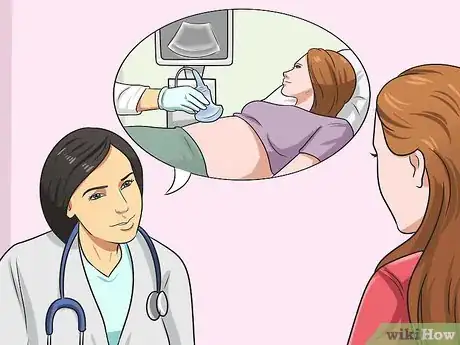




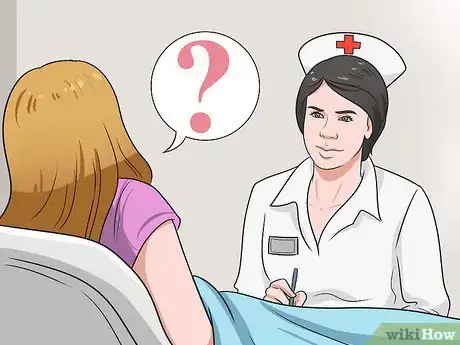


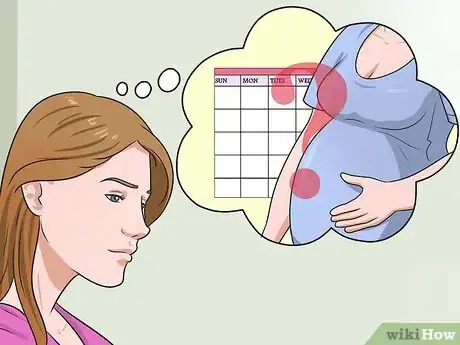

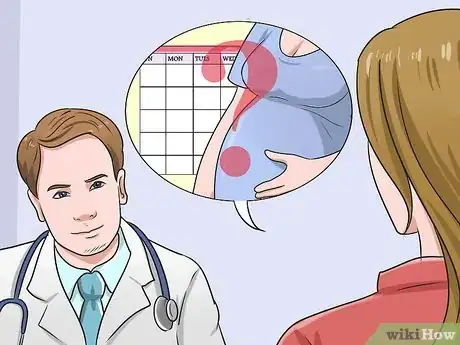


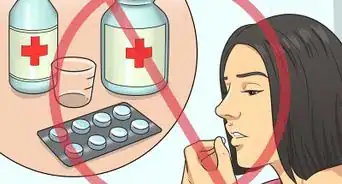


















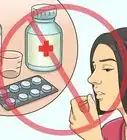




































Medical Disclaimer
The content of this article is not intended to be a substitute for professional medical advice, examination, diagnosis, or treatment. You should always contact your doctor or other qualified healthcare professional before starting, changing, or stopping any kind of health treatment.
Read More...